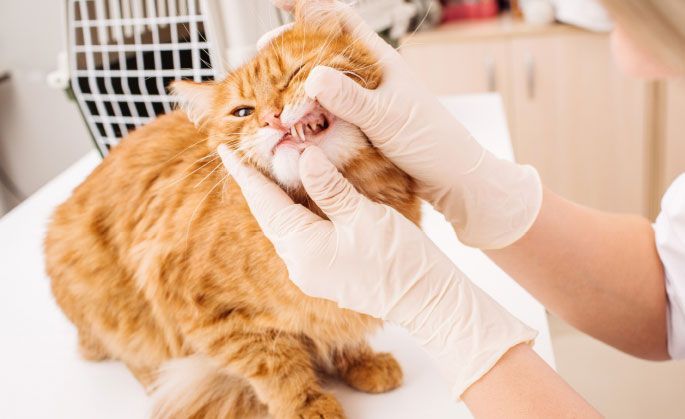New Puppy
HEALTH CARE FOR YOUR PUPPY
Vaccinations
It is essential to protect your puppy against the major infectious diseases. Puppies require a course of three injections at: 6weeks – distemper, hepatitis, parvovirus; 8 weeks – distemper, hepatitis, parvovirus; 10 weeks – distemper, hepatitis, parvovirus and canine cough, then a vaccination annually/triennially for life.
Intestinal Worming
Dogs need to be wormed regularly to control roundworms, tapeworms, hookworms and whipworms. This is especially important as these worms can be transmitted to humans. Puppies should be wormed every two weeks until 3 months old, then every month until 6 months of age, then every 3 months for life. Supermarket and pet shop brands may not kill all types of worms, so please ask for our advice.
Heartworm
Heartworm is a type of worm that lives in the heart and blood vessels and is spread by mosquitoes. There are a number of options available for heartworm:
Option 1: Monthly heartworm prevention from 3 months of age for life (Advocate, Revolution, Milbemax, Panoramis, Sentinel, Simparica Trio, Nexgard Spectra).
Option 2: Monthly worming from 3 months of age with Milbemax (covers both intestinal and heart worms) until 6 months of age, then give proheart at 6 months, 15 months (coincides with booster vaccination) and then annually. (Our preferred option).
Option 3: Proheart injection at 3 months, 6 months, 15 months and then annually.
Desexing
Both male and female dogs make better pets if they’re desexed. Apart from the risk of unwanted puppies a female dog that is not desexed has and increased risk of developing mammary tumours and life-threatening uterine infections. Entire male dogs are more likely to wander, be more aggressive and develop the habit of lifting their legs and urinating everywhere another male has marked. They are also at a higher risk of developing prostatic or urinary medical problems. Desexing has no harmful effects on your dog’s personality.
Fleas
A monthly top spot (Advantage, Advantix, Revolution) or oral tablet (Comfortis) is available for the prevention of fleas on your animal. Some products available also treat worms (except tapeworm), mites/lice, heartworms (Sentinel, Comfortis Plus, Advocate, Simparica, Nexgard Spectra, Simparica Trio). Some also protect against mosquitoes/flies and ticks (Nexgard Spectra, Advantix, Bravecto, Simparica Trio).
Nutrition
Puppies’ stomachs are small, but their energy requirements are high. Consequently they should eat small, frequent feeds. Provide a diet that is complete, balanced and especially formulated for puppies (Advance Puppy, Royal Canin Puppy). If your puppy is a large/giant breed please feed them the giant/large breed version of these foods. Puppies will stay on a puppy diet until they are roughly 12 months of age. There is no need to provide milk. Many puppies are lactose intolerant and feeding cow’s milk can cause diarrhoea. Ensure your puppy always has a good supply of fresh, clean water.
Dental Health
Although a balanced and complete commercial diet provide the correct nutrition for your puppy, they do little to keep your dog’s teeth clean. Only mechanical action can prevent tartar build up occurring on teeth. Dry foods provide some mechanical action and are better than wet food as wet food get stuck in the teeth/mouth. We recommend when feeding bones, feed whole raw meaty bones. Never feed cooked bones, cut bones or small bones as these can splinter or be swallowed whole which could cause obstructions or pierce the gut. We recommend not to feed your puppy bones until all their adult teeth have come through, this could be anywhere from 6-9 months. Brushing your dog’s teeth and the use of certain toys designed for dental care are other options available.
Identification
It is a requirement by law that all dogs are registered with the Toowoomba Regional Council within 14 days of the dog becoming 12 weeks of age. Microchipping between the age of 8 and 12 weeks is also a legal requirement. A microchip is a device implanted under the skin and that carries a unique number that is linked with the owner’s details. It is implanted under the skin for permanent identification. This number is different to the council registration and can be read with a microchip reader. It is also advisable to provide an identity tag that has the dog’s name, your name and telephone number.
6 Weeks
- 1st Vaccination.
- Intestinal Worming.
8 Weeks
- 2nd Vaccination.
- Intestinal & Heartworm Worming.
- Microchip.
10 Weeks
- 3rd Vaccination.
- Intestinal Worming.
- Heartworm Worming.
12 Weeks
- Intestinal Worming.
- Registration with the Council.
16 Weeks
- Intestinal Worming.
- Heartworm Worming.
20 Weeks
- Intestinal Worming.
- Heartworm Worming.
24 Weeks (6 Months)
- Intestinal & Heartworm Worming.
- +/- Proheart Injection (Heartworm).
- Desexing for most smaller breeds (<20kg adult weight).
Every 3 Months (for the rest of life)
- Intestinal Worming.
Or monthly:
- Heartworm.
- Intestinal Worming.
- Flea Treatment.
12 Months
- Desexing – larger breeds (adult weight >20kg) as long as the benefit outweighs the risk (ie. early pregnancy in females, behaviour in males).
15 Months
- 1st Annual Vaccination.
- +/- Proheart Injection (Heartworm).
Annually
- Health Check
- Vaccination
Health Care Timeline











